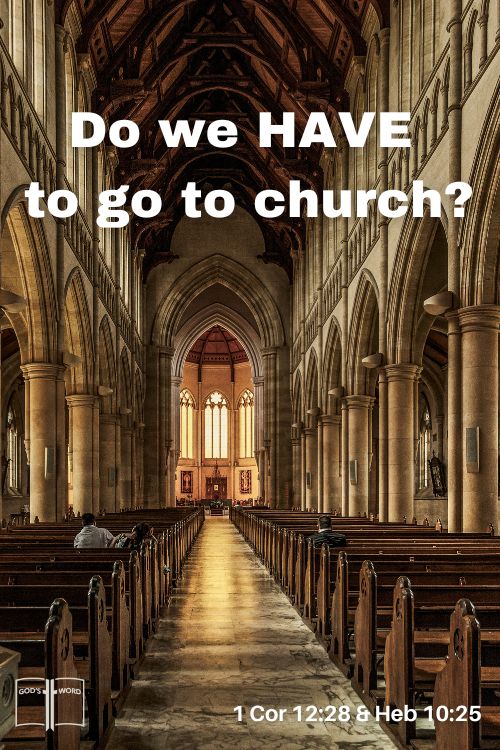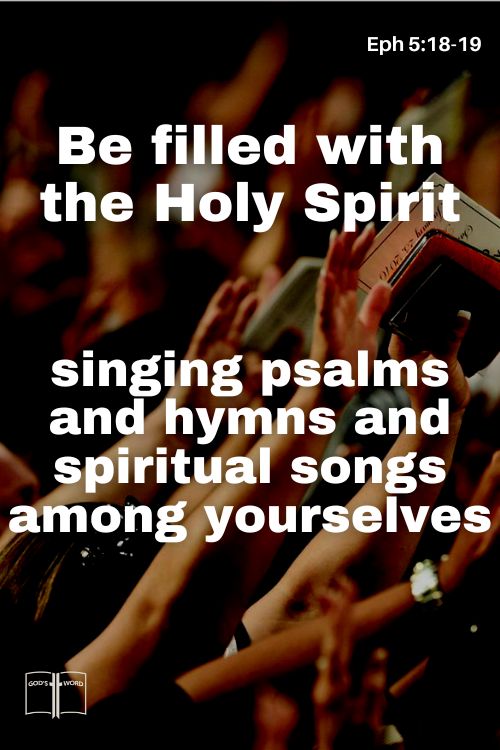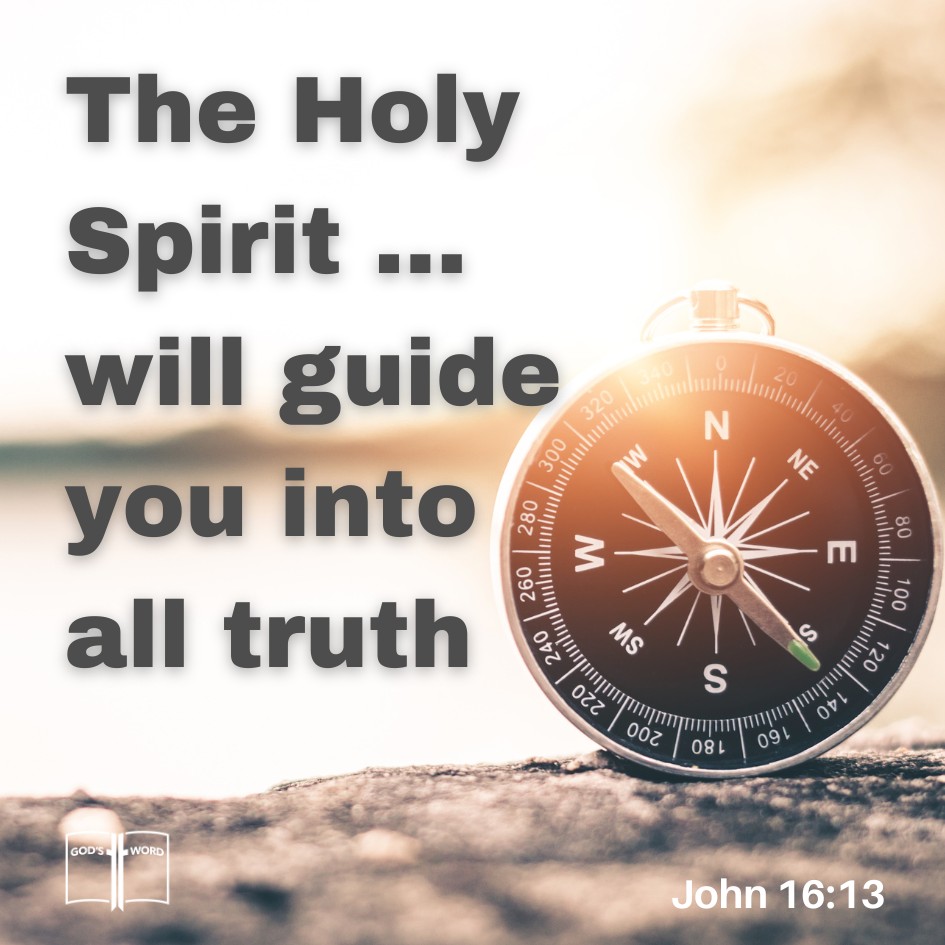- Home
- Bible Study
- Reasons to go to Church
What Does the Bible Say about Going to Church?
Have you ever gone to church and wondered, “Why do I even bother coming to church?”
You aren't alone.
That question and more, such as “Do I really need to go to church?” or “Is there any benefit to going to church?” pop up frequently. Let's look at a bit of the background and see how applicable 'going to church' is for today.
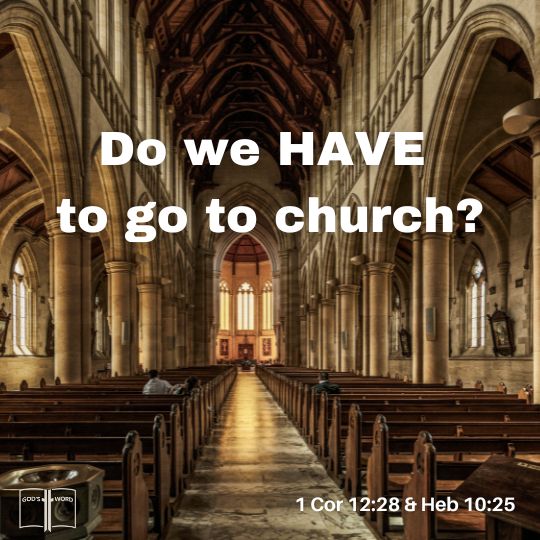
What is 'Church'?
The first use of the word 'church' in the Bible is in Matthew 16:18, ... upon this rock I will build my church, and the gates of hell shall not prevail against it.
The 'rock' referred to is Jesus and the knowledge of Him being Christ, the Messiah, the Son of the living God (Mat 16:16-19).
'Church' is the Greek word 'Ekklesia' meaning a popular meeting, assembly, a religious congregation.
Therefore, God's church is an assembly built around the truth of Jesus as the Christ, the Messiah, the Son of the living God. And, this assembly is a group of people gathered for a common purpose.
The 'Common Purpose' of the Church
What is our common purpose?
To gather together as an assembly of believers, in unity, including the head of the Church who is Jesus (Eph 5:23). Since the church is subject to Christ (Eph 5:24), we need to be willing to listen to what Jesus is saying to us.
There are actually no 'church' services in the scriptures from which we can draw on as an illustration of what a service should include.
We can use the Old Testament temple as an example. The sacrifices and the need to go through a priest have been done away with in the New Testament through Jesus' sacrifice, death, and resurrection. However, the major aspects of the temple assembly are the same:
- Praise
- Scriptures were read and taught
And that's the same in churches today.
We have the added sacrament of the Lord's Supper (Communion) because Jesus instructed the disciples to partake as often as they would in remembrance of Him (Lk 22:17-20). We have examples of Communion from Paul's writings in 1 Corinthians 11:23-30.
1. Praise
The author of Hebrews wrote, I will declare thy name unto my brethren, in the midst of the church will I sing praise unto thee, Hebrews 2:12. This paraphrases Psalm 22:22, I will declare thy name unto my brethren: in the midst of the congregation will I praise thee.
And how do we praise Him?
Praise ye the LORD.
Praise God in his sanctuary: praise him in the firmament of his power.
Praise him for his mighty acts: praise him according to his excellent greatness.
Praise him with the sound of the trumpet: praise him with the psaltery and harp.
Praise him with the timbrel and dance: praise him with stringed instruments and organs.
Praise him upon the loud cymbals: praise him upon the high sounding cymbals.
Let every thing that hath breath praise the LORD.
Praise ye the LORD.
Psalm 150
That sounds like a loud and joyful event!
I've stood in church singing along, upset by the volume, singing because I knew I should. My heart was far from participation and my attitude was far from praise.
But the moment I decided to actually praise and participate with the assembly, I didn't hear the volume because I was contributing to it. The volume of a joyful church, enveloped in praise, is really not comfortable to listen to. However, we are not gathered during praise to listen and critique music, but rather to offer up praises to the Most High God.
There is a reason for that joyful sound: Blessed is the people that know the joyful sound: they shall walk, O LORD, in the light of thy countenance, Psalm 89:15. Praise causes the glory of God to manifest in our lives as we walk in the light of His countenance (presence).
How was it that the Israelites could gather in the congregation and be full of praise? They would sing the Psalms of Ascents (Ps 120 – 134) as they walked to the temple. Doing this, centered their thoughts on God. Their hearts were being prepared to worship and praise.
Should we not do the same by coming to church prepared to worship and praise?
We can do that by speaking to ourselves in psalms and hymns and spiritual songs, singing and making melody in your heart to the Lord, Ephesians 5:19.
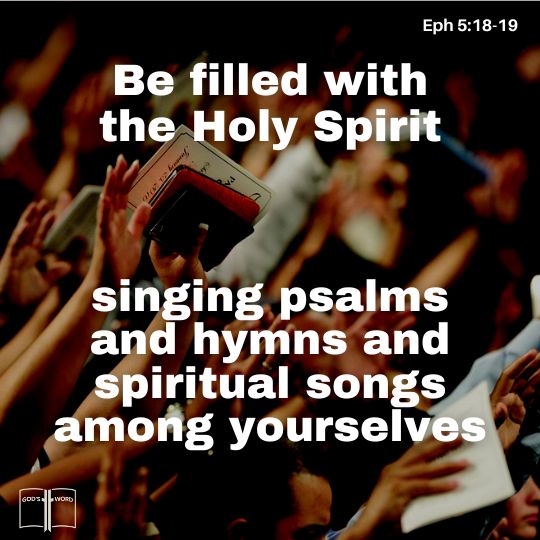
2. Scriptures were Read and Taught
In the Old Testament, God set the order for outfitting the Tabernacle with its building requirements, its ceremonies, its priests and workers, even down to the smallest item of their clothing.
Likewise, God has provided this for the New Testament church. However, since the church is not a building, but rather an assembly of people, the people 'outfit' the church.
And he gave some, apostles; and some, prophets; and some, evangelists; and some, pastors and teachers; For the perfecting [complete furnishing, equipping] of the saints, for the work of the ministry, for the edifying of the body of Christ: Till we all come in the unity of the faith, and of the knowledge of the Son of God, unto a perfect man, unto the measure of the stature of the fulness of Christ,
Ephesians 4:11-13 [brackets added]
The apostles, prophets, evangelists, pastors, and teachers are often called the five-fold ministry gifts. God gave them to the body of Christ for a very specific purpose.
This is emphasized again in this Bible verse: And God hath set some in the church, first apostles, secondarily prophets, thirdly teachers, after that miracles, then gifts of healings, helps, governments, diversities of tongues, 1 Corinthians 12:28.
Somehow, this church almost sounds like school to me!
We are to be perfected, thoroughly equipped, completely furnished so that we can do the work (labor) of the ministry.
And it sounds more like a college than a university. A university will pass on a lot of information. A college will provide information plus application. In a co-op program, you even work while you are still learning – ideal for gaining experience while you are maturing in that field.
That's what church is. A college, with a co-op program, where we will receive information that will equip us so that we can do the work God wants us to do. We work as we learn. When we apply for a job, we must prove ourselves to the boss that we are capable of doing the job. We become capable by studying the area we want to work in.
2 Timothy 2:15 says, Study to shew thyself approved unto God, a workman that needeth not to be ashamed, rightly dividing the word of truth.
Let me insert in brackets the additional Greek meanings for the words to amplify its impact:
Study [to make effort, be diligent, endeavour, labour, study] to shew [to be at hand, help, prove, stand] thyself approved [acceptable, approved, tried] unto God, a workman [lavourer, worker] that needeth not to be ashamed, rightly dividing [dissect correctly] the word [logos, speech, Word of God] of truth [verity].
So, we gather at church, be it Sunday mornings or Wednesday evenings, or anytime, to learn to study God's Word, to be able to apply it to ourselves so that we will be workmen acceptable and approved by God. God wants us as laborers and workers in the harvest field (Mt 9:38).
The Old Testament saints had no access to the Torah and most couldn't read. They had to rely on the priest to read to them. And, the priest was accountable for what he read. People would stand for hours when God's Word was being proclaimed. The Word was revered.
Now, most of us are literate and have the Bible available, even in digital form. We are accountable for what we read or don't read, and therefore, what we hear or don't hear.
When we gather, it's with God's Word, the Bible, in front of us. With pen and paper in hand, we write down what is taught. With our minds on the Word, we can fully attend to what God wants us to hear, so we can apply it to our lives.
Is Going to Church Necessary?
Is going to church necessary in order to go to heaven?
No.
'To get to heaven' really means accepting Christ Jesus as Lord and Savior (Rom 10:9-10) with sincere hearts. That results in being saved or born again (Jn 3:5-7).
Nothing we do, such as going to church or doing any other good works or good deeds, gets us saved. Salvation is a gift (Rom 6:23). Ephesians 2:8-9 says, For by grace are ye saved through faith; and that not of yourselves: it is the gift of God: Not of works, lest any man should boast.
So, going to church is not necessary, but it is beneficial.
What are the Reasons to Go to Church?
First and foremost, God tells us to not forsaking the assembling of ourselves together, as the manner of some is; but exhorting one another: and so much the more, as ye see the day approaching, Hebrews 10:25.
This assembling of God's people can happen anywhere, from home groups to large gatherings. The common denominator is that the body of believers needs to get together to exhort (to encourage, comfort, instruct) one another.
However God outfitted the church (Eph 4:11-13) for our benefit, to help us grow in the knowledge that results in maturity. It's where we are edified and perfected by the apostles, prophets, evangelists, pastors, and teachers He has placed there. It's also a place for corporate worship.
The importance of getting together with members of the body of Christ (at church or elsewhere) is that iron sharpens iron (Prov 27:17). It's how we grow when we interact with one another. It's where we learn to serve by using the spiritual gifts (1 Cor 12:4-10) and showing God’s love by having the fruit of the Spirit (Gal 5:22-23) evident. It's where spiritual growth happens. It's our training ground!
Can we train elsewhere?
Of course. There are online resources and online churches. One can go to a small group, a bible study or a conference.
More importantly though, is that we dig into God's Word for ourselves, relying on the Holy Spirit to teach us and lead us into all truth (Jn 16:13), imparting knowledge (1Jn 2:20; 1Jn 2:27) to us.
We follow God's instruction to Joshua:
This book of the law shall not depart out of thy mouth; but thou shalt meditate therein day and night, that thou mayest observe to do according to all that is written therein: for then thou shalt make thy way prosperous, and then thou shalt have good success.
Joshua 1:8
What to Look for in a Church
We are responsible for what we listen to and what we allow to influence us, positive or negative either towards life or towards death, since death and life are in the power of the tongue, Proverbs 18:21,
Choose a church that preaches and teaches the uncompromised Word of God and actively demonstrates the power of God as outlined in the Great Commission (Mt 28:18-20). In other words, if the signs and the power of the Holy Spirit aren't evident, it's time to look for another church.
How to Find the Right Church
The right church ministers the uncompromised Word of God with power and love, and places emphasis on praise and worship.
In it:
- the spiritual gifts are evident
- God’s Word is preached and taught
- the Lord confirms His Word with signs following (Mk 16:20)
That church will be one that equips the people to fulfill Jesus commandment:
Go ye into all the world, and preach the gospel to every creature. He that believeth and is baptized shall be saved; but he that believeth not shall be damned. And these signs shall follow them that believe; In my name shall they cast out devils; they shall speak with new tongues; They shall take up serpents; and if they drink any deadly thing, it shall not hurt them; they shall lay hands on the sick, and they shall recover.
Mark 16:15-18
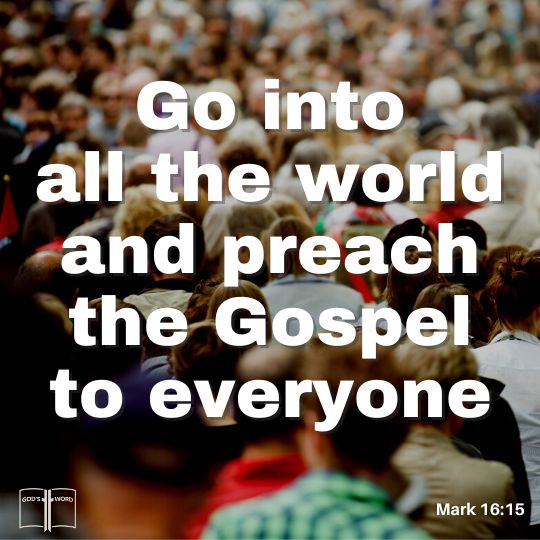
Jesus made a dramatic statement: Verily, verily, I say unto you, He that believeth on me, the works that I do shall he do also; and greater works than these shall he do; because I go unto my Father, John 14:12!
And what are these works?
Jesus explained that as well: ...that the blind see, the lame walk, the lepers are cleansed, the deaf hear, the dead are raised, to the poor the gospel is preached, Luke 7:22.
This is only possible with the power of the Holy Spirit working in and through us as we minister to others in our everyday lives. In order for this to happen requires that we are equipped ... the purpose of the church.
PIN THIS TO YOUR PINTEREST BOARD
Go ye therefore, and teach all nations, baptizing them in the name of the Father, and of the Son, and of the Holy Ghost: Teaching them to observe all things whatsoever I have commanded you: and, lo, I am with you alway, even unto the end of the world. Amen.
Matthew 28:19-20
Unless stated otherwise, all Bible passages quoted in orange are from the KJV translation.


